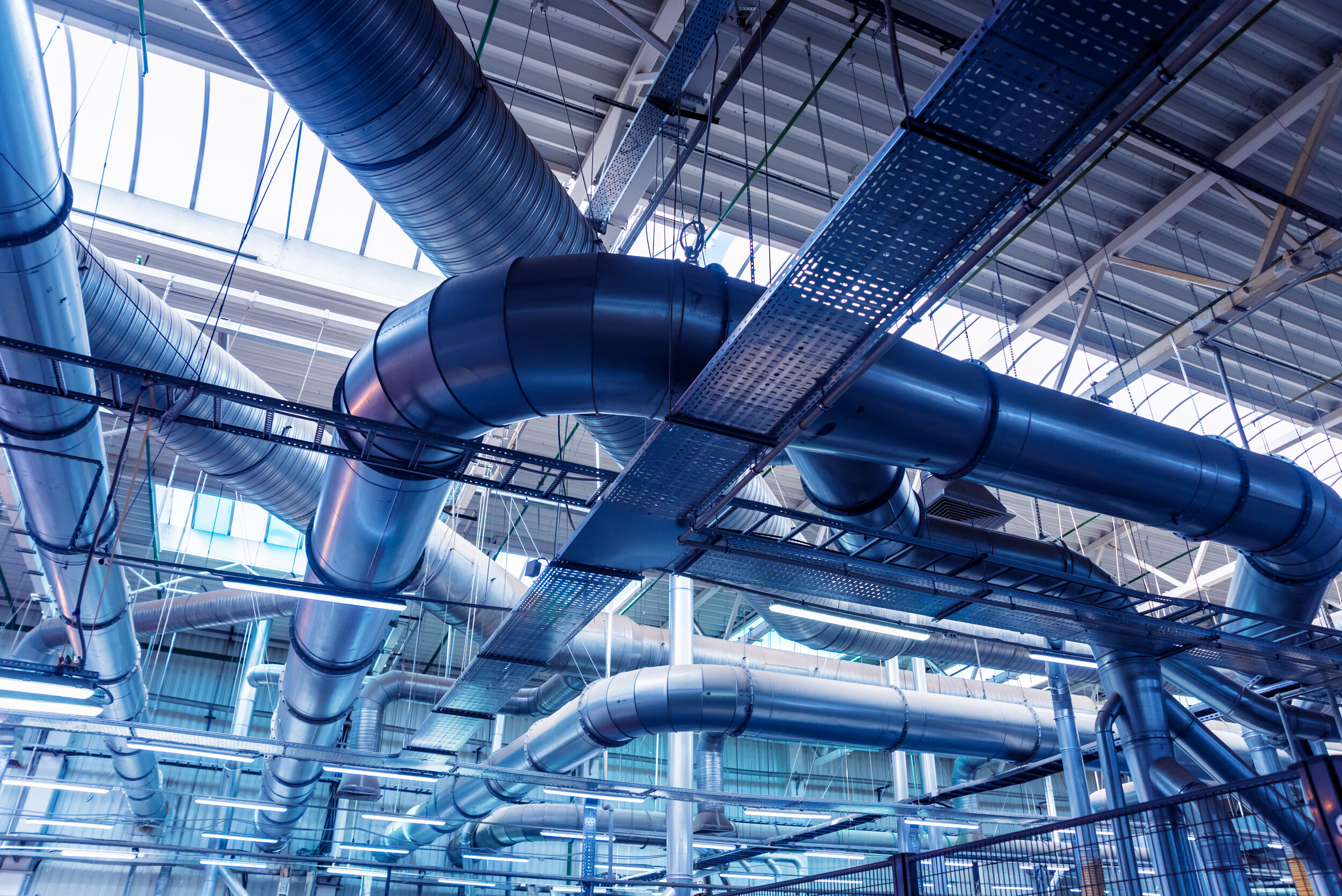
COVID 19 Considerations for Building HVAC Systems
An HVAC system that is well designed, maintained and operated will protect the owner’s investment, reduce operating costs and provide a healthy, comfortable environment for the tenants.
COVID-19 has introduced numerous challenges for building owners and operators. Because the virus is primarily transmitted through the air via respiratory droplets, Heating, Ventilating and Air Conditioning (HVAC) systems play an important role in reducing the risk of airborne transmission of the Coronavirus within buildings.
Building owners and managers may be wondering what they can do to make their buildings safe and return to business.
Factors to Consider
Good Ventilation Will Reduce The Risk
Traditionally HVAC systems have been designed to provide sufficient fresh air for the occupants and to control contaminants in the space.
With the advent of COVID-19, traditional ventilation rates may not be enough. Instead of just looking for HVAC systems to provide the required ventilation and occupant comfort at the lowest possible expense, building owners and managers need to modify their operational strategies to focus on providing a safe indoor environment.
One of the best ways to improve the indoor environment is to increase the amount of outdoor air introduced and make a corresponding reduction in the flow of recirculated air. This approach is a significant change in strategy and needs to be balanced with other factors such as the increased energy costs of heating or cooling more incoming air.
This means that the installed HVAC systems should be examined to determine if the amount of fresh air can be increased and what the effects would be. As a further measure, the systems can be assessed to see if a retrofit can be made to improve conditions even more.
Air Filtration Is Important
Air filtration also has a role in managing coronavirus exposure. Although the exact effect that filtration has on the Coronavirus is not yet fully known, research indicates that increasing filtration to remove more smaller particles from the airstream is beneficial.
As a result some air filtration systems are being upgraded as one measure to reduce the exposure to the virus inside buildings.
An upgrade of the filtration system must consider several factors. Thicker and denser filters are required to achieve higher efficiency. Air handling systems need to be examined to determine if there is sufficient space available for the filters and if the system will handle the increased resistance in the airstream. The benefits need to be weighed against higher energy consumption due to increased demand on the fan motors and higher filter replacement costs.
Ultaviolet (UV) Technology Can Help
Another area that is getting a lot of attention in the fight against COVID is treating the airstream with ultraviolet light or other similar technology. This type of system can be very effective in destroying the virus. However, the benefits need to be weighed against the higher installation cost compared to traditional filters and the additional space required for their installation. Maintenance and operating costs will also increase for this type of system.
Maintaining Proper Indoor Humidity is Beneficial
Another consideration related to indoor air quality is humidity. Traditionally buildings are maintained between 40% and 60% relative humidity to keep indoor conditions acceptable for the occupants and interior systems and protect the building envelope.
Some evidence suggests that viral particles remain airborne longer in dryer air. However increasing the humidity to fight the virus can have adverse effects and this must be balanced with the needs of the building and its occupants. It is often beneficial to evaluate the building and its humidification system to determine if the system capacity and control system are adequate and if the building envelope will permit higher levels of humidity.
Other Mechanical System Considerations
In addition to the factors discussed above, each mechanical system is unique and there may be other equipment which needs to be examined. Specific examples include heat recovery systems and the location of air intake and exhaust openings.
Response
Aspect Building Consulting will work with you to identify the needs and goals for your building and its mechanical system in response to the Coronavirus.
We will examine your building and its mechanical system in detail and determine what changes, if any would be advantageous.
Our findings would be summarized in a report complete with estimated costs for your review.
We are also able to assist in carrying out any required system modifications.
